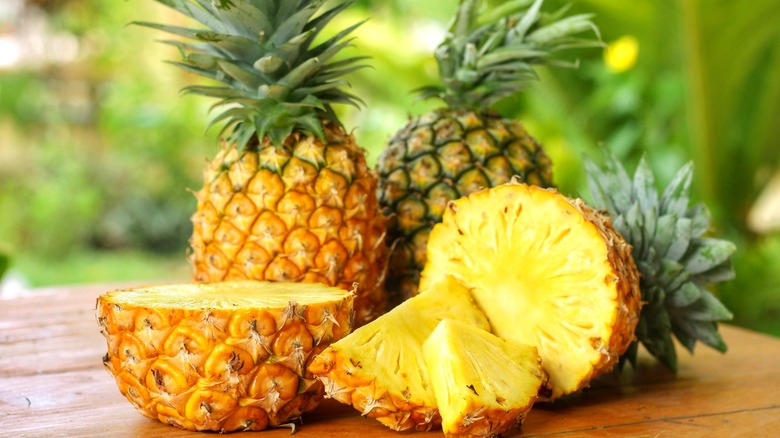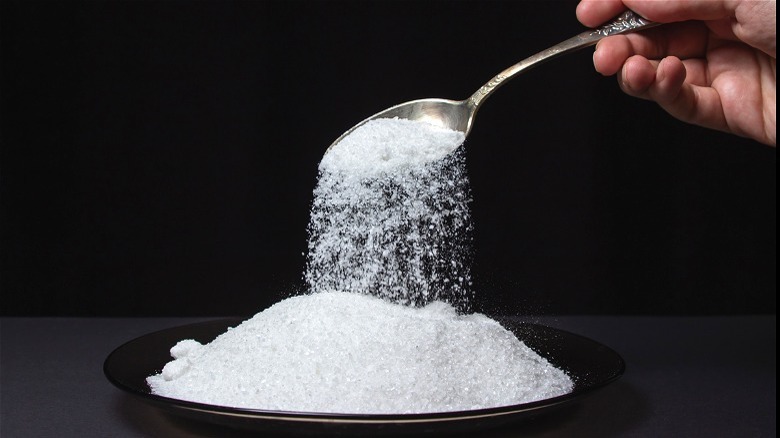How Salt Can Strangely Help Your Pineapple
With summer (unoffically) in full swing, there's nothing quite like sinking your teeth into a piece of juicy pineapple to appease your senses and quench your thirst. While pineapple is generally enjoyed eaten by the chunk or sipped by the glass, it also pairs well with meat and is surprisingly delicious when grilled over an open flame. This is party due to its bright acidic flavor and juicy texture.
In addition to the tantalizing flavor, pineapple also provides a slew of health benefits when consumed. Even the pineapple core is a nutrition powerhouse, providing almost a full day's worth of vitamin C in one serving.
One health benefit that can be viewed as a double-edged sword, stems from the unique bromelain enzyme that lives within pineapple flesh and breaks down proteins when consumed (via Healthline). Bromelain offers many health benefits such as anti-inflammatory properties that aid in healing more quickly from conditions like arthritis and common bruises. It can also repair blood cells and help stabilize your blood pressure.
With all the benefits of bromelain, the act of it breaking down amino acid chains within the mouth can cause a weird feeling. The prickly feeling noted by some can really take away from the enjoyment of eating pineapple. Luckily, according to EatingWell, assistant clinical professor of Culinary Arts and Food Science at Drexel University, Michael Tunick, Ph.D. calls out a brilliant solution.
Salt water causes bromelain to activate
Dr. Tunick tells Eating Well that by soaking your pineapple in a saltwater solution, the bromelain enzyme begins breaking down so that by the time you eat a piece, the enzyme will no longer be active. Essentially, salt speeds up the breakdown process of the enzyme.
While no ratios are suggested when it comes to how much salt or what kind, according to Dr. Tunick, one teaspoon of salt in one cup of water does the job perfectly. He suggests soaking the fruit for only a minute. While you may be left with a hint of saltiness on your pineapple, you can relax knowing that the tingly sensation on your tongue is gone for good. Bonus: Sweet and salty pair well together.
Science Meets Food suggests that while pineapple's high acidic content can add to the intense sensation of bromelain in the mouth, there are other ways to skirt the enzyme apart from salt water. You can use heat and bake your pineapple in a delicious pineapple upside-down cake. You can also take advantage of the bromelain enzyme and use it as a meat marinade to tenderize larger cuts. The outlet states "Bromelain can digest the collagen proteins that make meat tough, so its an effective tenderizer."
However, if grilling isn't your thing and you don't want to turn on your oven, try the salt water bath next time you slice up a pineapple.

